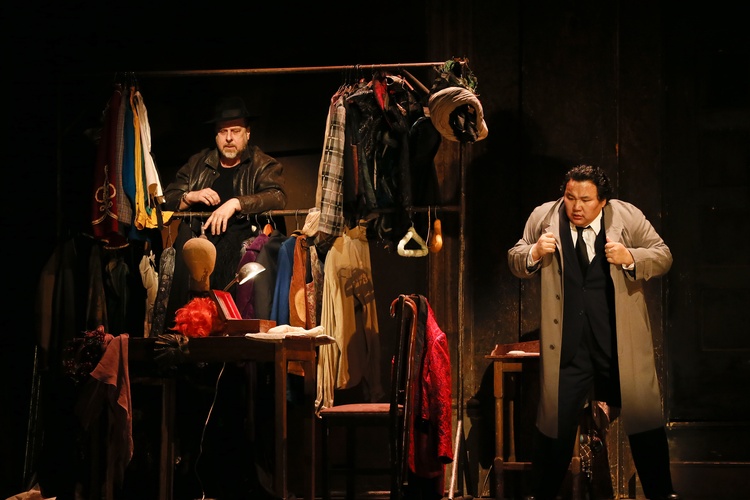“As a professional, I prefer Rigoletto; as an amateur, La Traviata.”
These words were a confession from the same Giuseppe Verdi and contain all the “greatness” of the opera whose protagonist is the most legendary court jester ever to grace the stage.
The curtains at the Arts Centre Melbourne opened last Saturday on the Verdi masterpiece and on the lavish sets that accompany the three acts of the opera.
They will close again on May 29.
Rigoletto’s history dates back to 1851 at the Teatro La Fenice in Venice and continued at the La Scala opera house just two years later.
The Italian libretto was written by Francesco Maria Piave; it was based on the play Le roi s’amuse by Victor Hugo.
When it debuted it seemed to be marked by an adverse fate.
Not only was it unwelcomed by critics and more so from the public, it was also censored and only returned to the stage half a century later.
The descriptions of the philandering of Francis I and of the dissolute French Court did not hit the mark.
Years later, Verdi and Piave “brought the action” over from France to Mantua under a new title.
It was the librettist himself who made a good suggestion: translating the original name of Hugo’s character from Triboulet to Triboletto, before finally arriving at the name we all know today.
Rigoletto comes to Melbourne to open Opera Australia’s 2019 musical season, under Andrea Licata’s orchestra direction and with Roberto Scandiuzzi in the role of Sparafucile.
“I liked opera at a very young age, but never thought of being a singer,” he said.
“During my military service, one of my colleagues suggested I take some lessons and so my career began, quite randomly.”
Scandiuzzi has a natural bass vocal range.
Although his repertoire is typically Verdian, this is the first time that the singer attempted Rigoletto.
“It is a role that I have always dreamed about,” he said.
“Sparafucile (the hired assassin) requires a rougher voice that does not really match my character and my vocal timbre.
“I actually recorded this part 20 years ago with Pavarotti.
“Now, together with Lyndon Terracini and Opera Australia, we’re bringing it to Melbourne.”
Rigoletto’s plot is typical of a classic opera that puts the torment and pain of the worst tragedy onto the stage: that of a father who loses his daughter by his own hand.
The melodrama is divided into three acts and is set in Mantua in the 16th century.
It begins with a party at the royal palace and takes place over the course of a few days, and ends, like any worhty opera, with a death.
Rigoletto, the deformed and caustically witty court jester, who makes fun of everyone, plots and schemes and takes revenge, has a “secret” daughter named Gilda, who is the light of his life.
Ordinarily tough and cruel with others, Rigoletto is instead a tender and considerate father to his daughter.
He is concerned about keeping her away from the corrupt world of the court.
However, by a twist of fate Gilda has caught the attention of her young master, the Duke of Mantua, an unrepentant womaniser.
The courtiers’ reactions to the court jester will make way for a series of crimes: Gilda, Rigoletto’s daughter, will be kidnapped and seduced by the Duke.
To avenge Gilda’s honour, Rigoletto will hire the bandit Sparafucile to kill the Duke, but it will be his beloved daughter to die instead.
There was an impressive rendition of La donna è mobile, one of the most popular arias thanks to its extreme catchiness and accompanying dances, as well as the famous quartet Bella figlia dell’amore effectively and sensitively performed by the Duke (tenor), Maddalena (contralto), Gilda (soprano) and Rigoletto (baritone).
Rigoletto is a much-anticipated event for Melbourne.
It will be followed by two other productions at the Arts Centre Melbourne: Mozart’s Così fan tutte, and Rossini’s Il Viaggio a Reims (The Journey to Reims).
For anyone who is passionate about opera but doesn’t have any friends or family with whom they can share this passion, the ‘Opera for One’ initiative, conceived by Opera Australia in collaboration with the Arts Centre Melbourne, is the answer to the question: “Who can I bring with me tonight?”
A host from Opera Australia will welcome individual participants and make sure they will be in good company for the evening.
For more information, visit Opera Australia’s website.












